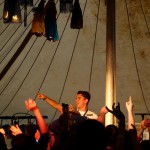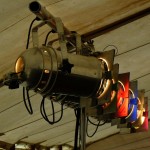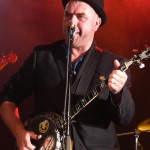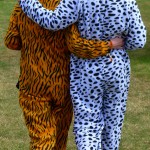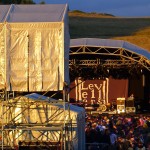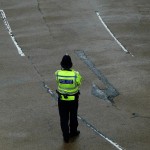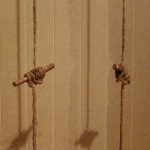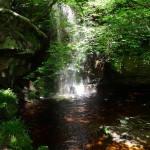Max is often asked about ME, having suffered from it in the 1980s and having survived and thrived since then. If you think you have ME or Glandular fever, go and see a doctor and remember, Adams has NO medical training: these are personal thoughts and reflections; everyone must deal with such illnesses in their own way and seek professional help. But there is precious little help out there, so Adams offers these words of support…
… please feel free to post comments on your own experiences here .
… and if you are a medical practitioner and you think Max’s advice is wrong or stupid, please do comment.
I had ME from 1982 on and off for several years. Since no-one took it seriously then, I had to work out myself what was the best strategy for dealing with it. The following is the regime I came up with, which worked (and occasionally still has to work) for me.
The latest word seems to be that with ME, a post-viral fatigue syndrome, the body is working against itself as if it has triggered an immune response; like being allergic to oneself.
Some don’ts and do’s:
You should completely avoid strong stimulants – and this includes coffee, fizzy drinks, orange juice and very definitely alcohol. ME seems to strike the liver hard, I guess trying to process all the toxins that are washing around the body; so don’t give it any more to deal with than you have to. Tea seems to be alright as it releases its caffeine slowly; herbal tea probably even better. Water, of course, is the best drink bar none; lots of it.
Exercise: in those brief gaps between spells of fatigue, there is often a sense of remission. You feel a bit more energetic, tempted perhaps to go for a run or a swim. My experience is that this should be avoided too. It invariably leads to a crash: a week or so in bed, unable to do anything. I suggest nothing more than gentle walking for a good while after you begin to feel better.
Diet. My experience was that my body was not nearly as efficient as normal in processing nutrition. I learned to cut down to very moderate levels of heavy carbohydrates: pasta, rice, bread etc, potatoes. Not cut them out, just go very easy on them. I ate and still eat a lot of fish, replace a fair amount of wheat products with oats, and eat loads of fresh fruit and veg. I cook with olive oil and I exercise, as my other pages will show, plenty. My stamina and fitness are way better than most people my age (I just walked 180 miles from my home to Glasgow and could have done it all over again) and so I must be doing something right. Oh, and being nice to your body is great for stress relief.
I also found that taking vitamin supplements did no good at all: it seemed to me that the body couldn’t absorb such concentrated ‘hits’. For what it’s worth, my feeling is that in an ME state the body needs gentle, complex help. So I used, and still use, bags of dried fruit and nuts from health food stores to boost those things that seem to be so lacking with ME: mainly trace metals: selenium, lithium, zinc, iron etc and the usual vitamins. If you only do one positive thing, get stuck into a couple of handfuls of dried fruit and nuts every day: especially brazils, hazels, walnuts, raisins, almonds, apricots. If you look up on the Internet tables of the trace metals we need, and what nuts provide them, you should work out how to make a good balance. And for women, iron is, of course, extremely important. I know there are some (expensive) vitamin pills available which claim to be much easier for the body to absorb; maybe worth a try.
The only supplement which might be worth taking is Vitamin D in winter. Research is showing just how important it is and how much more so the further north you go. ME is more prevalent in the North. So either fill your diet with foods rich in D or get a pill (but with my warning above about how the body deals with pills). And go out and get some sun: it’s good for you so long as you avoid burning.
General dietary tips: when I feel a bout of ME coming on, I start eating a lot of fish, chicken, fresh fruit (NOT juice), pro-biotic yoghurt, fresh vegetables of lots of different colours: beetroot, carrots, brassicas especially. For fillers and snacks (much better than big meals) I recommend oatcakes which have no gluten and a good GI.
This is basically common sense. The other thing worth mentioning is that I learned to be able to ‘taste’ ME; like there were toxic chemicals washing around in my head. The potentially clinical levels of depression, sometimes misanthropy and self-loathing are SYMPTOMATIC. You are not going mad, your body is ‘poisoning’ you. So be nice to it, treat it very gently and give it the best possible chance to recover itself. And try as much as you can to be nice to yourself: it really helps. Even your best friends probably think you are skiving or just losing the plot.





